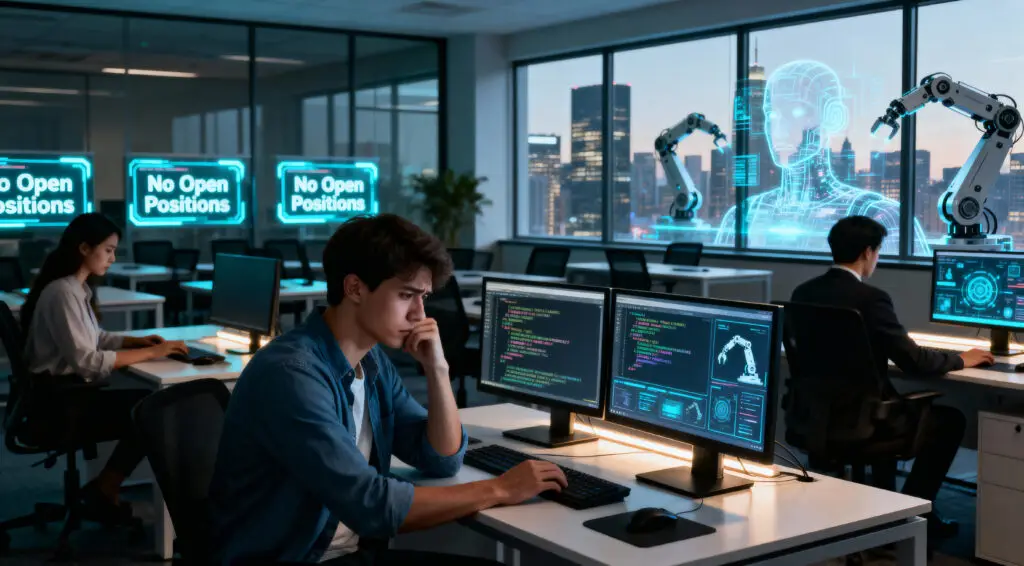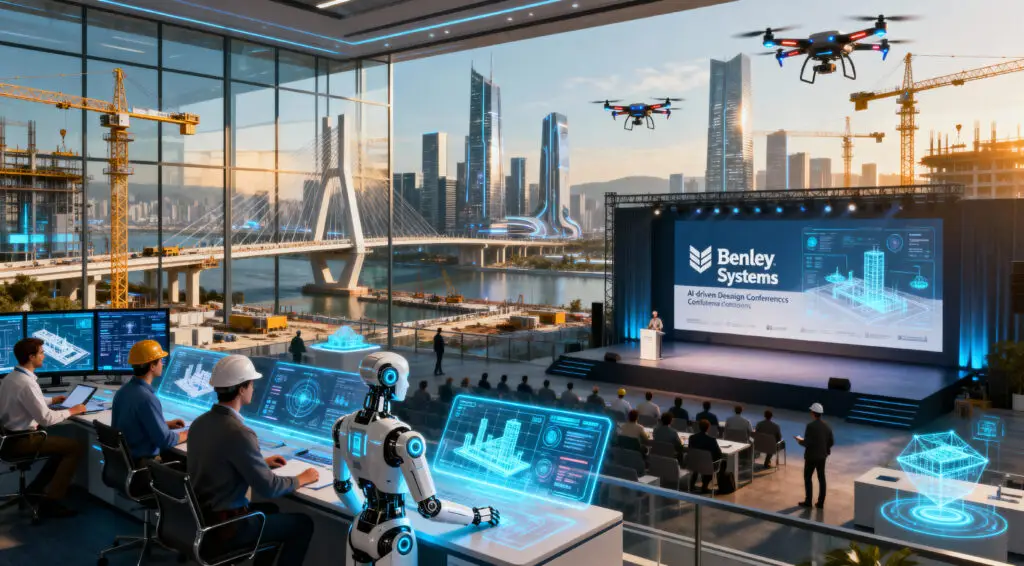The Harsh Reality for America’s New Tech Graduates
Thousands of fresh computer science graduates across the United States are facing one of the toughest job markets in years. Despite strong academic credentials, many are struggling to secure roles as AI automation reshapes entry-level opportunities.
Traditional hiring cycles have slowed dramatically, with companies cautious about expanding amid political and economic uncertainty. While rate cuts from the Federal Reserve aim to support employment, they cannot reverse structural disruptions triggered by automation and global trade tension.
Federal Reserve’s Limits in Solving Labor Market Shifts
The Federal Reserve has begun reducing interest rates in hopes of stimulating job growth, but economists warn that monetary policy can only influence demand, not structural supply changes. While lower borrowing costs make business expansion easier, they cannot offset the long-term shift caused by artificial intelligence replacing entry-level tasks.
AI tools now automate code testing, data management, and even content development — once essential training grounds for junior engineers. This shift is leaving new graduates stranded between education and employability.
Trump’s Tariff Policies Deepen Hiring Uncertainty
President Donald Trump’s economic policies have added another layer of uncertainty to the already fragile labor environment. His ongoing trade disputes with Canada and China have disrupted global supply chains, leading companies to delay or freeze hiring decisions.
Tariffs on technology components, coupled with rising production costs, are forcing firms to cut budgets and rely more on automation to stay competitive. Economists say even as rate cuts continue through 2026, policy volatility may keep businesses hesitant to hire aggressively.
Recommended Article: Scientists Near Discovery of Earth’s True Twin Planet
CEO Sentiment Turns Cautious on Workforce Expansion
A recent survey by the Conference Board revealed that sixty-eight percent of U.S. CEOs plan to maintain or shrink their workforce over the next six months. Executives cite economic uncertainty and AI disruption as key deterrents to new hiring. While corporate profits remain stable, leaders are reluctant to commit to large-scale recruitment amid evolving trade conditions.
For young job seekers, this translates into fewer entry-level openings and increased competition for limited roles in high-demand specialisations such as AI and cloud infrastructure.
AI’s Dual Role in Innovation and Job Displacement
Artificial intelligence is revolutionising industries, but it is also erasing traditional entry points for new workers. Tasks once assigned to junior developers and designers are now managed by generative models and automation frameworks. Studies show that nearly ninety percent of tech workers now use AI tools in daily operations, reducing the need for additional human support.
Experts predict that within five years, half of existing job roles could be fundamentally transformed. For graduates, the dream of coding for innovation has shifted toward competing with it.
The Shift in Tech Job Composition and Demand
Data from Indeed shows job postings in the technology and mathematics fields are down thirty-five percent from pre-pandemic levels. Openings for software developers and designers have plunged, while listings for AI engineering and data centre management have risen sharply.
This evolution reflects a deeper reallocation of human capital toward AI maintenance and infrastructure. Economists describe the phenomenon as a “skills mismatch,” where the education pipeline no longer aligns with market demand. Universities are now urged to integrate AI and systems design into their core curricula to remain relevant.
A Generation in Transition Faces New Realities
For young professionals, the current market feels both disorienting and unfair. Graduates like Abraham Rubio, who studied computer science for stability and opportunity, now face a market dominated by uncertainty. The race to adapt is pushing many to retrain, pursue certifications, or explore freelance work in AI integration.
Economists remain hopeful that technological evolution will eventually create new categories of employment. Yet, for now, the transition remains painful — a reminder that innovation’s benefits rarely arrive evenly across a generation.























